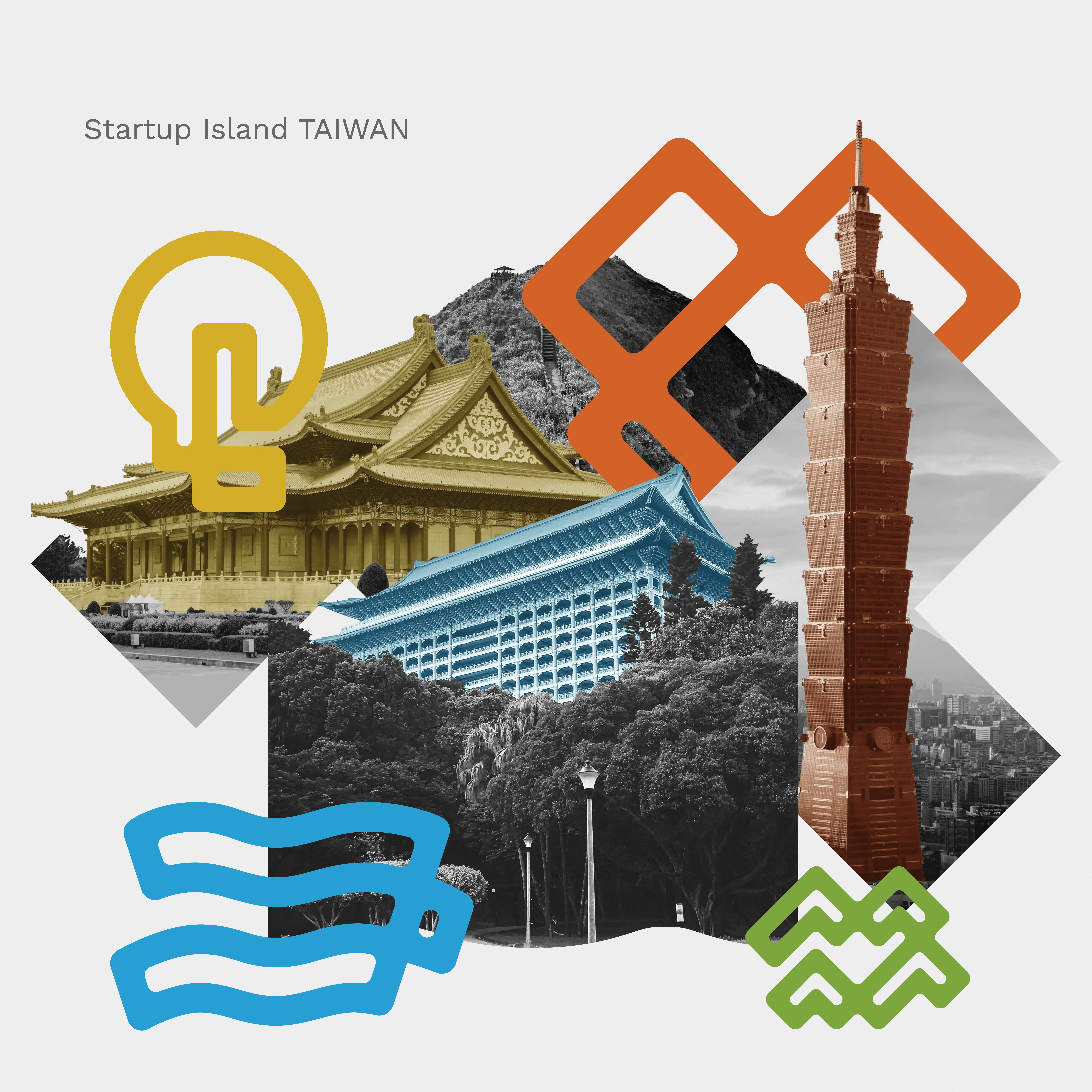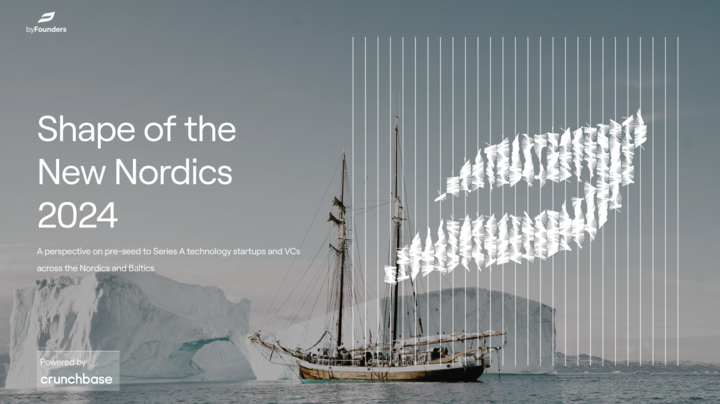Crunchbase and East-West Digital News are teaming up to cover key tech and venture trends from Russia, Ukraine, and Belarus. This column by EWDN Chief Editor Adrien Henni highlights the most notable industry facts and trends in the second quarter of this year (the previous column is available here).
SPACs with Russian flavors
Considering the small number of international IPOs from Russia (the latest example in the digital field being Ozon in November last year), the question of whether or not a Russian tech company could be involved in a SPAC remained open until very recently.
Such a player has now emerged. Founded by Russians with a part of its team still based in Moscow, Cyprus-based game developer Nexters is preparing its Nasdaq introduction through an agreement with SPAC company Kismet. Initially scheduled for completion in Q2 2021, the merger has been postponed to Q3. Nexters has been placed at an enterprise value of $1.9 billion, with Kismet and PIPE investors — which include the Emirati sovereign wealth fund Mubadala — providing $100 million.
Founded by Russian top telco executive Ivan Tavrin, Kismet has launched no fewer than three SPACs. The first — which merged with Nexters — closed its $250 million Nasdaq IPO in August 2020. The next two raised $230 million and $287.5 million almost simultaneously in April 2021. The three SPACs have an almost identical focus — the technology and sectors primarily in Russia or, more broadly, the EMEA region.
In March, Denis Sverdlov, a Russian serial entrepreneur and former government member, also took advantage of the SPAC wave, introducing his company Arrivalon the Nasdaq. Based in the U.K., this innovative electric-car maker has little to do with Russia, putting aside the origin of its founder, but its success came as yet another illustration of Eastern European entrepreneurs’ ability to develop global success stories in the tech field.
Meanwhile Momentus, another Russian-founded company involved in a SPAC, drew attention from the Securities and Exchange Commission in a negative light. According to the SEC, Mikhail Kokorich, a Russian national established in the West, misled the SPAC investors about the state of the company’s technology and about national security risks associated with him. In turn, SPAC company Stable Road grossly failed to perform adequate due diligence to identify those issues and endorsed the company’s misleading information in the merger documents.
Co-founded and headed until recently by Kokorich, Momentus “offers the infrastructure services necessary to enable enterprise and human existence to flourish in space.” The company announced its merger with Stable Road in October 2020, claiming that the partners were “creating the first publicly-traded space infrastructure company at the forefront of the new space economy.”
Following its investigation, the SEC reached a settlement with Momentus and Stable Road while maintaining its legal action against Kokorich. Under a revised merger agreement — announced in July 2021 — the enterprise value of Momentus was established at $567 million, down from $1.13 billion under the original deal.
Momentus’ latest move was to name John Rood, former U.S. Under Secretary of Defense, as new CEO. Kokorich, who denies the SEC’s accusations, stated: “At least my origin and nationality will not stay anymore between Momentus and Space.”
VC darlings from Eastern Europe
Tavrin, Sverdlov and Kokorich are among a plethora of tech entrepreneurs from Eastern Europe who moved to the West. LETA Capital has estimated that more than 17,000 Russian-speaking and Eastern European IT entrepreneurs and startups were active in the U.K., Europe and the U.S., as well as Southeast Asia and the Middle East, which are also home to a host of them.
The most spectacular and recent success story is that of Revolut, the London-headquartered banking app. Co-founded by Russian Nik Storonsky and Ukrainian Vlad Yatsenko, this company has just reached a $33 billion valuation as it secured a mega round with Softbank Vision Fund 2 and Tiger Global.
Other big successes over the past two years include Veeam Software (sold to Insight Partners for $5 billion), MagicLab (sold to Blackstone for $3 billion), Luxoft (sold to DXC Technology for $2 billion), Wrike (acquired by Citrix Systems for $2.25 billion), GitLab (valued at $6 billion in January 2021), and Ecwid (sold for $500 million in June 2021).
Recent studies find that successful startups with founders or roots in Eastern Europe tend to follow a specific development path. Many of them focus on digital technologies that do not require considerable capital injections; hence they tend to raise less, and later, than their Western peers.
It is no surprise that such startups are drawing increased attention from investors. Over the past few months, several venture funds emerged with a specific focus on Eastern-European tech entrepreneurs operating across the world:
- The Untitled, an established Russian venture firm, has raised 100 million euros ($118.7 million) for a new, London-based vehicle that will typically invest in startups with Russian, Ukrainian or Belarusian founders;
- Moscow-based LETA Capital is in the process of attracting $100 million for a new fund with a similar target, with plans to start investing by the end of this year; and
- Established this past spring, a new fund called NRG Ventures (New Russian Generation) is chasing Eastern European entrepreneurs in the USA and the EU.
A number of existing VC firms have also made funding available to Eastern-European tech founders globally — but without such an exclusive focus on this community. These firms include Almaz Capital, Gagarin Capital Partners, LVL1, Runa Capital and Target Global, to name just a few with Russian roots; as well as AVentures Capital and TA Ventures, which are based in Ukraine; and Acrobator Ventures, a Western-managed fund.
Additional private and public venture initiatives could be announced soon, targeting the region, East-West Digital News learned from industry insiders.
Russian food delivery disruption in the West
Express food delivery is one of the sweet spots Russian tech entrepreneurs established in the West. These entrepreneurs seem to have the recipe to organize local deliveries in record-short time: around 15 minutes.
The founders of Samokat, a successful startup from St. Petersburg (acquired last year by Mail.Rru Group and Sber), are preparing to launch a similar service in the U.S.. In June 2021, their company, Buyk, raised $46 million from Russian-connected VC firms and international business angels.
Other cases of Russian-founded express delivery companies include:
- Getfaster.io, a German fresh product retail and delivery company which started operations in Germany in January (raised €1.5 million in early 2021 with plans to raise another €30 million later this year);
- FoodRocket, launched by Vitaly Alexandrov in San Francisco (raised $2 million in May 2021);
- Fridge No More, which serves clients in several areas of New York City (secured more than $15 million in March 2021);
- Jiffy, founded in November 2020 to deliver fresh products, meals and household essentials in London (raised $6.6 million in April 2021); and
- Yandex’s Yango Deli,which already operates in Israel and is in the process of launching operations in France and in the U.K.
Another Yandex affiliate, Yandex Self-Driving Group, has just agreed to a partnership with GrubHub to develop driverless food deliveries on college campuses in the U.S.
Meanwhile Alex Vasilkin, an entrepreneur from Russia who’s now established in California, has developed a last-mile delivery management solution. His startup, dubbed Cartwheel, helps businesses launch in-house delivery or upgrade their third-party delivery infrastructure. In May 2021 Cartwheel raised $1 million from U.S. restaurant chain Portillo.
Domestic deals in Russia
On Russia’s tiny domestic venture scene ($702 million in 2020), the most notable capital injections in Q2 2021 included the following:
- $250 million went to online video serviceIVI, which hopes to go public in the West;
- $75 million was invested by VTB Capital, a division of the state bank VTB, in the Delimobilcar-sharing service, in exchange for a 15 percent stake;
- $26 million was injected by Russian, Austrian and Swedish investors into insuretech leader BestDoctor.ru;
- $22 million was secured by service marketplace Eruditor, which aims to go global;
- $16 million was raised by e-scooter startup Urent, with plans for regional leadership;
- $7.4 million went toNeiry, a neurotech which aims to “accelerate computer-integrated human evolution;”
- $5.5 million was injected by a pulp and paper billionaire into ViewEvo, a startup that knows how to recognize fashion items in TV programs;
- $3 million was invested in a neobank called TalkBank, which is developing “a bank in messengers;” and
- Another nearly $3 million was provided to Briskly, a Russian unmanned retail startup which targets the E.U., U.K. and U.S. markets.
Among this quarter’s significant acquisitions:
- Yandex, the Nasdaq-listed Russian search giant, agreed to fully purchaseAcropolBank for approximately $14.7 million, as well as tip automation startupChaevieprosto for $1 million:
- Tinkoff Group, which owns one of the world’s largest digital banks, closed the acquisition of a majority stake in digital wallet company Beskontakt (CardsMobile);
- The Moscow stock exchange bought a 70 percent stake in Inguru, a major marketplace for insurance and banking products;
- Sber, the state-controlled financial and technology giant (previously known as Sberbank), acquired CRM startupJivo for a reported $20 million;
- Sber also announced the full acquisition ofMuzlab, a leader in the Russian B2B audio streaming market, and that of a 80 percent stake inInSales, to help Russian SMEs sell online.
- LSE-listed Mail.Ru Group acquired cloud gaming startupPlaykey; and
- Nasdaq-listed Ozon reached an agreement with Sovcombank for the acquisition ofOney Bank, in order to enhance its financial service offerings.
In Ukraine
Few significant domestic deals took place in this country, as most Ukrainian startup entrepreneurs tend to register their companies in other jurisdictions and operate partly from there.
Among the most notable local deals were:
- A series of equity-free funding deals involved state-backed Ukrainian Startup Fund; and
- A $500,000 injection intoEffa, a startup that creates nature-friendly toothbrushes, from an anonymous local investor.
Meanwhile, the French carpooling giant BlaBlaCar acquiredOctobus, a Ukrainian tech firm that develops software for bus operators, helping them manage their finances and ticket sales.
In Belarus
Since last summer, unbridled political repression has led to a massive emigration of IT engineers and startup entrepreneurs outside the country, which was once considered to be a promising tech hot spot in Eastern Europe.
The startup drain continued or perhaps even accelerated during the past spring, as many people were losing any hope to see the situation improve in the foreseeable future. Meanwhile, hiring tech talents in Belarus became much more complicated as senior employees started looking for a job abroad.
A few domestic deals were nevertheless closed in Q2 2021. In early April, Russian investment firm GEM Capitalinjected $1.4 million into a Minsk-based gaming studio called Weappy. Almost simultaneously 2GIS, a leading mapping service owned by Russia’s Sber, announced the acquisition of RocketData, a successful geomarketing startup.
The news was tarnished by the arrest of RocketData’s CEO Daria Danilova, just weeks afterwards, due to her links with Tut.by — an independent portal which had just been shut down by the local authorities.
Belarusian edtech startup EduDoraised $300,000 from Ukrainian and Russian investors. The deal took place on foreign soil, however, as company founder Yury Shlaganov and some of its engineers had moved to Ukraine amid the Belarusian political turmoil.
OneSoil, a more established Belarusian-founded startup — now established in Switzerland — secured $5 million from international investors Almaz Capital and PortfoLion. The company’s technology uses satellite imagery for farming analytics, helping farmers monitor fields and increase yields.
Adrien Henni is the chief editor at East-West Digital News (EWDN.COM, UADN.NET), an international news and consulting agency dedicated to tech innovation in Eastern Europe. With nearly 20 years of experience in the high-tech and venture businesses, he advises a variety of startups, investors and other organizations. He is a regular contributor to industry publications and speaks at conferences in Western and Eastern Europe, Asia and America. Contact Adrien at editor@ewdn.com
.svg)







